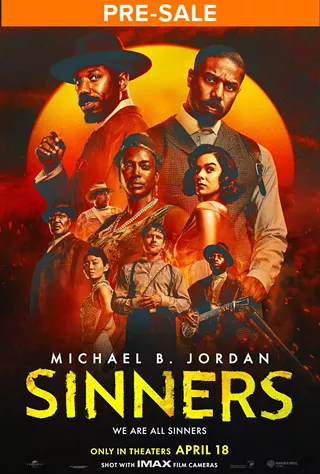Like everything else, enough time passes, and we can look back at the events of Sept. 11 through film and literature without focusing squarely on that day.
It becomes understood that planes were flown into the World Trade Center, into the Pentagon, and into the earth in western Pennsylvania—and to the degree that we can, we move on. Somehow, it even becomes understood that 3,000 people died on that day as a result of the attacks. It happened with Pearl Harbor; it happened with the Holocaust and Hiroshima; and now it has happened with Sept. 11—it can be dramatized.
United 93 was one of the best films of 2006, although it was so tense and so directly associated with that day that many people skipped it altogether. World Trade Center was a little more sanitized and hopeful. Reign Over Me, with Adam Sandler and Don Cheadle, pushed the events into the world of character backstory, and quite a few productions since have done the same thing.
Extremely Loud and Incredibly Close uses Sept. 11 as its launching pad, but it's entirely unnecessary. A lead character dies early, but it could have really been from anything—a car crash, diabetes, a robbery gone wrong—because Extremely Loud is only concerned with closure from the death itself, not really the World Trade Center attacks. However, it may conjure up unpleasant memories of that day, which actually makes the film rather cynical: Could it not engage an audience emotionally without it?
The film does engage us emotionally, at the end, but it's thankfully disconnected from our recollections of the attacks. Reaching that climax, however, is very mechanical. That's mostly due to the central performance in Extremely Loud, delivered by a first-time child actor named Thomas Horn. A former Jeopardy! Kids Week champion, Horn might be an ideal fit to play the fastidious Oskar Schell from Jonathan Safran Foer's novel: He seems that smart, seems that peculiar, and seems that fragile. But Horn also comes across as a little robotic. It's his first performance, so it's hard to say if that's a deficiency or a design. This could be a fantastic performance or just a grating one, depending on where you sit.
Oskar describes himself as having been tested for Asperger syndrome, but notes that the results were inconclusive. He's a Francophile. He counts the number of lies he tells. So he's not, in the strictest sense of the term, your normal everyday kid, even before he loses someone close to him in the World Trade Center.
A year after Sept. 11, Oskar begins a remarkable adventure. Reconnaissance Mission has always been his favorite game, and a key to an unknown lock gives him an opportunity to begin his greatest mission yet. It appears to belong to a safe-deposit box, but whose and where? The name Black was written on the envelope that contained the key, so Oskar makes a list, and then a map, and then a plan of attack to contact all 400-odd Blacks in New York City.
Most of the action of the film—though very little of the anticipation, as it turns out—revolves around Oskar's makeshift census. Along the way, he attracts a companion in his travels, an elderly man who has been renting a room from his grandmother. The Renter (Max von Sydow) doesn't talk. He communicates primarily through hand-written notes, which is pretty inefficient on a movie screen, but he does have "Yes" and "No" tattooed on either palm, so that speeds up some conversations.
If watching Thomas Horn is something like watching an adding machine at tax time, then seeing Max von Sydow perform silently is like watching a sculptor shape mounds of clay into life. He understands that the audience is not watching him perform to see how he does it so much as they are watching The Renter go through his daily life. And to him, not speaking is no big deal. So von Sydow doesn't use big, sweeping gestures to punctuate the character's emotions, and he doesn't fumble the performance through vanity. He's built this guy from the ground up to live silently, when he could be more forcefully showy. It tempers Horn's performance and gives the film some much-needed centering.
Director Stephen Daldry is three-for-three to this point. He made three films before this—Billy Elliot, The Hours and The Reader—and he has been nominated each time for the Best Director Oscar; the most-recent pair were Best Picture nominees. However, Extremely Loud seems unlikely to keep the streak alive. It's so incredibly manipulative, and not even in the way Oscar voters generally like or admire. Despite the wallop it certainly packs in act three, it all feels as if there was no genuine emotion spent to get to the waterworks late in the game.









